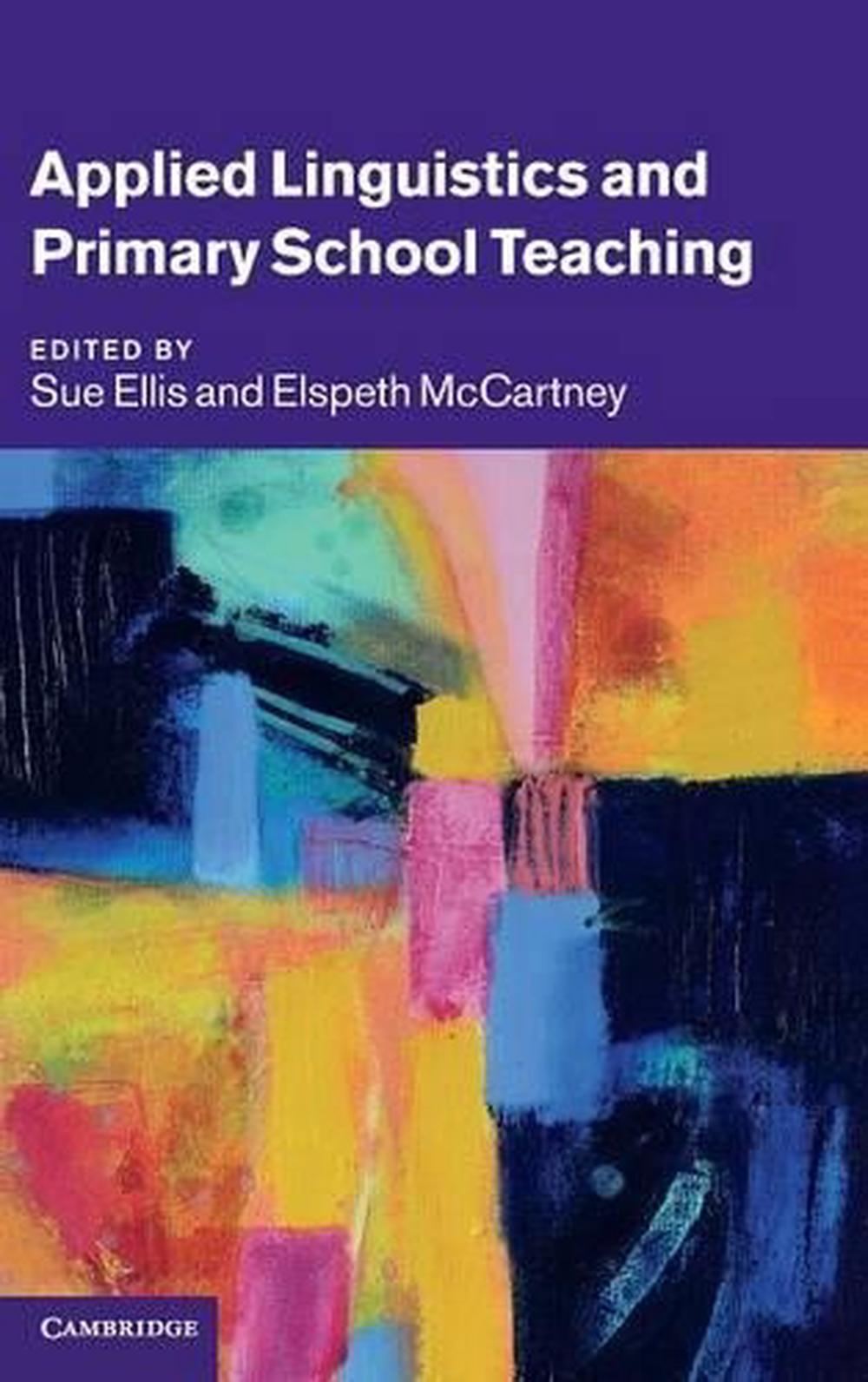
Applied Linguistics and Primary School Teaching
by Sue Ellis, Elspeth McCartney
How applied linguistics knowledge informs literacy policy, curriculum and pedagogy in primary schools, making literacy teaching more efficient and effective.
Hardcover
English
Brand New
Publisher Description
Modern primary teachers must adapt literacy programmes and ensure efficient learning for all. They must also support children with language and literacy difficulties, children learning English as an additional language and possibly teach a modern foreign language. To do this effectively, they need to understand the applied linguistics research that underpins so many different areas of the language and literacy curriculum. This book illustrates the impact of applied linguistics on curriculum frameworks and pedagogy. It captures the range of applied linguistics knowledge that teachers need, and illustrates how this is framed and is used by policy makers, researchers, teacher educators and the other professions who work with teachers in schools. It considers how to effect professional development that works. It is essential reading for primary teachers but also for speech and language therapists, educational psychologists, learning support teachers and all those doing language or literacy research in the primary classroom.
Author Biography
Sue Ellis studied for her first degree, in Theoretical Linguistics and Language Pathology, at the University of Essex and is currently a Reader in Literacy and Language at the University of Strathclyde. Her research, teaching and consultancy interests are in literacy development, teacher education and in how to make literacy policy work in practice. Her current research projects are on children's understanding and use of characterisation in writing, and on literacy policy development in Scotland and Malawi. With Kathy Hall, Usha Goswami, Colin Harrison and Janet Soler, she has co-edited Interdisciplinary Perspectives on Learning to Read (2010). Elspeth McCartney is Reader in the Speech and Language Therapy Division in the Department of Educational and Professional Studies, University of Strathclyde. She has qualifications in both teaching and in speech and language therapy, and currently teaches and researches in the field of childhood speech and language impairment and therapy. Her major publications are in language interventions for children with specific language impairment and in teacher-therapist co-professional working practices and she has had many research grants on these topics. She is a fellow of the Royal College of Speech and Language Therapists.
Table of Contents
Introduction Sue Ellis and Elspeth McCartney; Part I. Policy and Diversity in the Twenty-First Century Primary School: Introduction to Part I Sue Ellis and Elspeth McCartney; 1. Who decides what primary teachers need to understand? Dominic Wyse; 2. Working with English as a second language students: an Australian perspective on what primary teachers need to know Jennifer Hammond; 3. Preparing for diversity: the alternatives to 'linguistic coursework' for student teachers in the USA Deborah Horan and Afra Ahmed Hersi; 4. Supporting children with speech, language and communication needs Maggie Vance; 5. Foreign language teaching in the primary school: meeting the demands Dan Tierney; Part II. The Range and Focus of Linguistics Research Perspectives: Introduction to Part II Sue Ellis and Elspeth McCartney; 6. Grammar for designers: how grammar supports the development of writing Debra Myhill; 7. The use of corpus-based approaches in building children's knowledge about language Alison Sealey; 8. Words and pictures: towards a linguistic understanding of picture books and reading pedagogy Vivienne Smith; 9. From storytellers to narrators: how can the history of reading help with understanding reading comprehension? Elspeth Jajdelska; 10. Talk about text: the discursive construction of what it means to be a reader Gemma Moss; 11. Why we need to know about more than phonics to teach English literacy Terezinha Nunes and Peter Bryant; 12. Understanding children's reading comprehension difficulties Jessie Ricketts, Joanne Cocksey and Kate Nation; 13. Classroom discourse: the promise and complexity of dialogic practice Adam Lefstein and Julia Snell; 14. Pedagogy and bilingual pupils in primary schools: certainties from applied linguistics Angela Creese; Part III. Empowering Teachers and Teachers' Use of Knowledge: Introduction to Part III Sue Ellis and Elspeth McCartney; 15. Building knowledge about language into a primary teacher education course Henrietta Dombey and Jane Briggs; 16. Using the IPA to support accurate phonics teaching Greg Brooks; 17. Decoding, word recognition and spelling: typically developing children and children with language-learning difficulties Kenn Apel, Elizabeth B. Wilson-Fowler and Julie J. Masterson; 18. The development of the Speech, Language and Communication Framework (SLCF) Mary Hartshorne; 19. Applied linguistics: why a 'just in time' model might work for children with language impairments and empower teachers Sue Ellis and Elspeth McCartney; 20. Communication impairment in a multilingual context Carolyn Letts; 21. Teacher education: what applied linguistics needs to understand about what, how and where beginning teachers learn Viv Ellis and Jane Briggs.
Promotional
How applied linguistics knowledge informs literacy policy, curriculum and pedagogy in primary schools, making literacy teaching more efficient and effective.
Promotional "Headline"
How applied linguistics knowledge informs literacy policy, curriculum and pedagogy in primary schools, making literacy teaching more efficient and effective.
Description for Bookstore
Illustrates how applied linguistics knowledge informs literacy policy, curriculum and pedagogy in primary schools. It will help class teachers, learning support staff, speech and language therapists, educational psychologists and literacy researchers (including teachers doing action research) to analyse children's requirements, literacy provision and ensure efficient language and literacy learning.
Description for Library
Illustrates how applied linguistics knowledge informs literacy policy, curriculum and pedagogy in primary schools. It will help class teachers, learning support staff, speech and language therapists, educational psychologists and literacy researchers (including teachers doing action research) to analyse children's requirements, literacy provision and ensure efficient language and literacy learning.
Details

